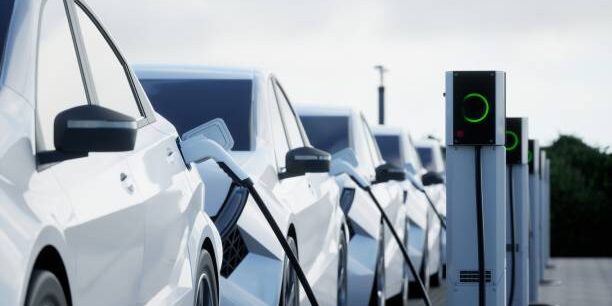The transition to electric vehicles (EVs) represents a vital opportunity to reduce global greenhouse gas emissions, and the U.S. is taking significant steps to strengthen its EV battery supply chain. Currently, the reliance on China for battery materials presents challenges, but the Inflation Reduction Act (IRA) offers robust incentives to bolster domestic production and diversify supply sources, ultimately enhancing supply chain resilience.
Recent research from a leading engineering institution has analyzed how the IRA can effectively promote vehicle electrification while reducing vulnerabilities in the supply chain. The study emphasizes that the tax credits available through the IRA could potentially exceed the costs associated with battery production, providing manufacturers with a powerful incentive to invest in domestic capabilities.
One of the key elements of the IRA is the 30D New Clean Vehicle Credit, which offers $7,500 to encourage manufacturers to focus on local production methods and explore alternatives to foreign materials. This credit aims to stimulate the growth of a robust U.S. supply chain, ensuring that EV production is not only more sustainable but also less susceptible to disruptions.
The research highlights the positive impact of electric vehicle manufacturing on job creation, as these vehicles require more labor per unit produced compared to traditional vehicles. This job growth aligns with the broader goals of enhancing supply chain capacity and driving economic development within the U.S.
While there are complexities regarding the restrictions on materials from designated “Foreign Entities of Concern,” the IRA provides a clear path for automakers to explore innovative production methods and partnerships. By shifting towards local supply chains, manufacturers can not only comply with regulations but also foster a more resilient and efficient supply chain ecosystem.
Moreover, the study suggests that certain battery technologies, such as lithium iron phosphate batteries, have the potential to further diversify supply chains while qualifying for valuable incentives. This flexibility allows companies to adapt and innovate, contributing to a more sustainable and competitive market.
The IRA primarily encourages downstream battery manufacturing diversification, but its impact on upstream supply chains will depend on how effectively automakers respond to existing challenges. As the industry evolves, there is a growing potential for automakers to adopt creative leasing strategies that maintain compliance while maximizing benefits from the IRA.
In summary, the U.S. industrial policy represents a significant leap forward in strengthening the electric vehicle battery supply chain. By promoting domestic production and innovative approaches, the IRA not only mitigates risks but also creates a pathway for sustainable growth in the automotive industry. The commitment to building a robust and adaptive supply chain underscores the positive direction of the EV market and its vital role in addressing climate change.
#ICTTMNews #BreakingNews #PositiveNews #SupplyChainResilience #EVInnovation #GreenEnergy #SustainableGrowth







